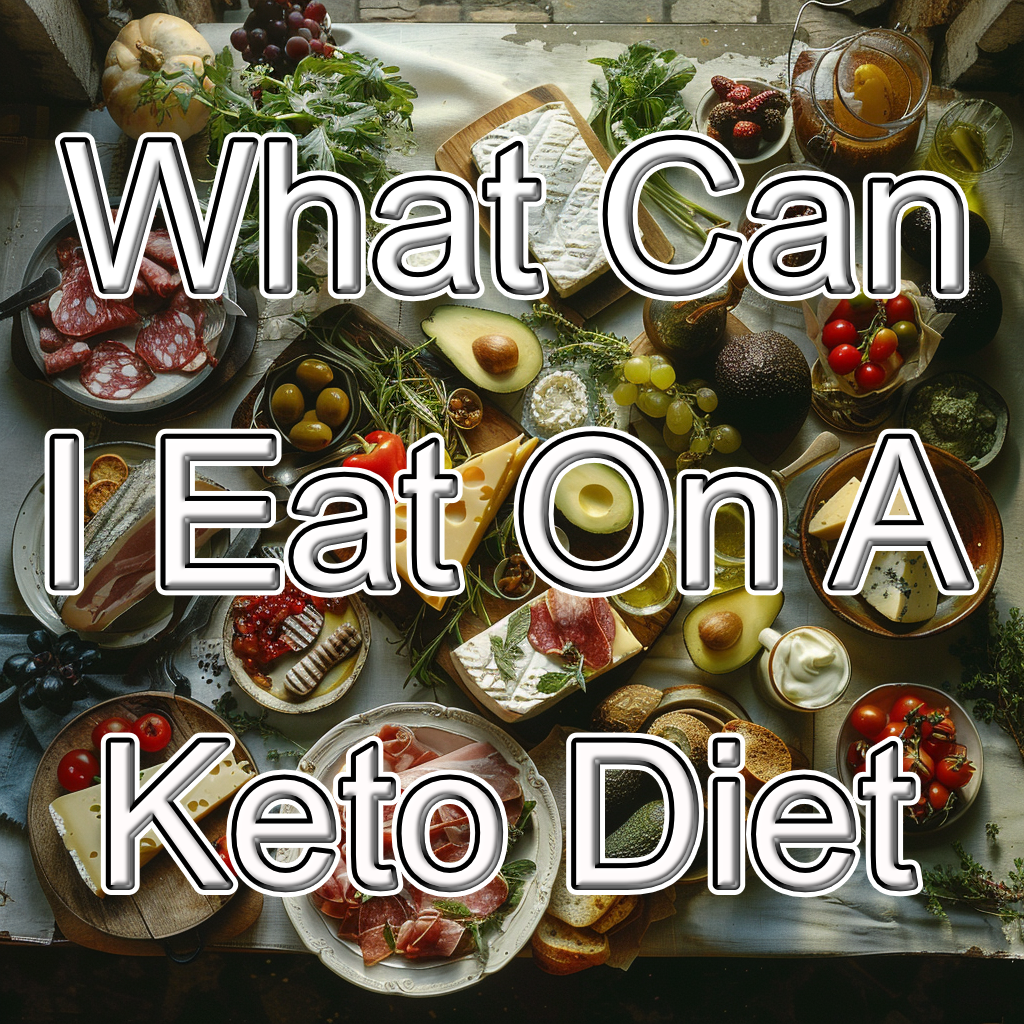A Clear and Neutral Overview

If you’re looking to lose weight, improve your health, or simply try a new diet, you may have heard of the keto diet. The keto diet, also known as the ketogenic diet, is a low-carb, high-fat diet that has gained popularity in recent years. But what exactly is the keto diet and how does it work?
The keto diet is designed to help your body enter a state of ketosis, in which it begins to burn fat for fuel instead of carbohydrates. To achieve this, you must significantly reduce your intake of carbohydrates and increase your intake of healthy fats. This can be a difficult adjustment for some people, but many find that the benefits of the keto diet are worth the effort.
Key Takeaways
- The keto diet is a low-carb, high-fat diet designed to help your body enter a state of ketosis.
- To achieve ketosis, you must significantly reduce your intake of carbohydrates and increase your intake of healthy fats.
- The keto diet has been associated with several health benefits, but it may not be appropriate for everyone.
Understanding Keto

Definition of Keto Diet
The ketogenic diet, or keto for short, is a low-carb, high-fat diet that has been popularized for its ability to help people lose weight and improve their health. The diet is designed to put your body into a metabolic state called ketosis, where it burns fat for fuel instead of carbohydrates. This is achieved by drastically reducing your carbohydrate intake and increasing your fat intake.
Ketosis Explained
Ketosis is a natural metabolic state that occurs when your body doesn’t have enough carbohydrates to burn for energy. Instead, it starts to burn fat for fuel, which produces ketones that your body can use for energy. This process is called ketosis, and it’s the basis of the ketogenic diet.
When you follow a ketogenic diet, your body enters a state of ketosis within a few days to a few weeks. During this time, your body becomes more efficient at burning fat for fuel, and you may experience increased energy levels, mental clarity, and weight loss.
History of the Ketogenic Diet

The ketogenic diet was first developed in the 1920s as a treatment for epilepsy. It was later discovered that the diet could also be used to help people lose weight and improve their overall health. Today, the ketogenic diet is widely used as a weight loss tool and is also being studied for its potential therapeutic benefits for a variety of health conditions, including type 2 diabetes, metabolic syndrome, and neurological disorders.
Overall, the ketogenic diet can be an effective way to lose weight and improve your health, but it’s important to consult with your healthcare provider before starting any new diet or exercise program.
Nutritional Components
The ketogenic diet is a high-fat, moderate-protein, and low-carbohydrate diet. The macronutrient ratios are typically around 70-80% fat, 20-25% protein, and 5-10% carbohydrates. The goal of the keto diet is to shift the body’s metabolism from using glucose as the primary source of energy to using fat as the primary source of energy.
Macronutrient Ratios
The macronutrient ratios of the keto diet are different from the typical Western diet. Carbohydrates are limited to 20-50 grams per day, which is much lower than the recommended daily intake of 225-325 grams per day. Protein intake is moderate, as too much protein can be converted into glucose and interfere with ketosis. Fat intake is high, as it is the primary source of energy on the keto diet.
Foods to Eat

On the keto diet, you should focus on eating healthy fats, such as avocado, olive oil, and coconut oil. You can also eat protein-rich foods, such as eggs, fish, meat, and cheese. Non-starchy vegetables, such as broccoli, cauliflower, and leafy greens, are also allowed on the keto diet. Nuts and seeds, such as walnuts and chia seeds, are also good sources of healthy fats and protein.
Foods to Avoid
The keto diet involves avoiding high-carbohydrate foods, such as grains, bread, pasta, and sugar. Fruits, except for small amounts of berries, are also not allowed on the keto diet. Starchy vegetables, such as potatoes and corn, should also be avoided. Processed foods, such as chips, crackers, and cookies, are high in carbohydrates and should be avoided on the keto diet.
In conclusion, the keto diet is a high-fat, moderate-protein, and low-carbohydrate diet that focuses on healthy fats, protein, and non-starchy vegetables. By limiting carbohydrates and increasing fat intake, the body enters a state of ketosis, where it uses fat as the primary source of energy. It is important to consult with a healthcare professional before starting the keto diet, especially if you have any underlying health conditions.
Health Benefits

The ketogenic diet has been associated with several health benefits. In this section, we will discuss the most commonly reported benefits.
Weight Loss Advantages
One of the primary reasons people try the ketogenic diet is for weight loss. Research has shown that the keto diet can help you lose weight by reducing hunger and increasing satiety. When you eat a low-carb, high-fat diet, your body enters a state of ketosis. This means that your body is burning fat for fuel instead of glucose. As a result, you may experience rapid weight loss.
Blood Sugar and Insulin Levels
The ketogenic diet has been shown to have a positive impact on blood sugar and insulin levels. In fact, some studies have shown that the keto diet can help people with type 2 diabetes reduce their blood sugar levels and improve their insulin sensitivity. This is because the keto diet is low in carbohydrates, which can cause blood sugar spikes.
Impact on Heart Health
The keto diet may also have a positive impact on heart health. Studies have shown that the keto diet can help reduce cholesterol levels and blood pressure, two risk factors for heart disease. Additionally, the keto diet may help reduce inflammation in the body, which is also associated with heart disease.
Neurological Effects
The ketogenic diet was originally developed to treat seizures in children with epilepsy. Since then, research has shown that the keto diet may have other neurological benefits as well. Some studies have shown that the keto diet can improve cognitive function and reduce symptoms of Alzheimer’s disease and Parkinson’s disease.
Overall, the ketogenic diet has been associated with several health benefits, including weight loss, improved blood sugar and insulin levels, improved heart health, and neurological benefits. However, it is important to note that the keto diet is not for everyone and should be done under the guidance of a healthcare professional.
Potential Risks and Side Effects

The keto diet is a high-fat, low-carbohydrate diet that has become popular for weight loss and improved health. However, there are potential risks and side effects associated with this diet. In this section, we will discuss some of the most common ones.
Common Keto Side Effects
Keto Flu
One of the most common side effects of the keto diet is the “keto flu.” This is a collection of symptoms that some people experience when they first start the diet. Symptoms may include headache, fatigue, dizziness, nausea, and irritability. These symptoms usually go away within a few days to a week as your body adjusts to the new diet.
Hunger
Another potential side effect of the keto diet is hunger. Since the diet is low in carbohydrates, it may not provide enough energy to satisfy your appetite. This can lead to feelings of hunger and cravings for high-carbohydrate foods. To combat this, it is important to eat enough high-fat foods to keep you feeling full.
Constipation
The keto diet may also cause constipation in some people. This is because the diet is low in fiber, which is important for regular bowel movements. To prevent constipation, it is important to eat plenty of high-fiber foods such as vegetables, nuts, and seeds.
Long-Term Health Considerations
Liver and Kidney Health
The keto diet may also have long-term health considerations. Since the diet is high in fat, it may put a strain on your liver and kidneys. This is because your liver is responsible for processing the fat you eat, and your kidneys are responsible for filtering waste products from your blood. If you have any pre-existing liver or kidney conditions, you should talk to your doctor before starting the keto diet.
Insulin Resistance and Triglycerides
Another potential long-term health consideration is insulin resistance and high triglycerides. The keto diet may cause insulin resistance, which can lead to high blood sugar levels and an increased risk of type 2 diabetes. Additionally, the diet may cause an increase in triglycerides, which are a type of fat in your blood. High levels of triglycerides can increase your risk of heart disease.
High Blood Pressure
Finally, the keto diet may also cause high blood pressure in some people. This is because the diet is high in saturated fat, which can cause inflammation in your blood vessels. If you have any pre-existing high blood pressure conditions, you should talk to your doctor before starting the keto diet.
In conclusion, the keto diet may have potential risks and side effects that should be taken into consideration before starting the diet. It is important to talk to your doctor before starting the diet and to monitor your health closely while on the diet.
Keto Diet and Specific Conditions

The keto diet is effective in managing several health conditions. Here are some of the specific conditions that the keto diet can help with:
Keto for Diabetes Management
The keto diet can be an effective way to manage diabetes. The diet is low in carbohydrates, which means that it can help regulate blood sugar levels. When you eat carbohydrates, your body breaks them down into glucose, which raises your blood sugar levels. By reducing your carbohydrate intake, you can reduce your blood sugar levels and improve your insulin sensitivity. This can help to manage type 2 diabetes and reduce the risk of complications associated with the condition. According to a study published in the Journal of Medical Internet Research, the keto diet can also help to lower A1C levels, which is a measure of blood sugar control over time.
Keto and Epilepsy
The keto diet was originally developed as a treatment for epilepsy. The diet works by producing ketones, which are byproducts of fat metabolism. Ketones have been shown to have anticonvulsant properties, which means that they can help to reduce the frequency and severity of seizures. According to the Epilepsy Foundation, the keto diet can be effective in reducing seizures in children with epilepsy who have not responded to other treatments.
Keto Diet and Obesity
The keto diet can be an effective way to lose weight and manage obesity. The diet is high in fat, which can help to reduce hunger and increase feelings of fullness. This can lead to a reduction in calorie intake and an increase in weight loss. According to a study published in the International Journal of Environmental Research and Public Health, the keto diet can be an effective way to reduce body weight and improve body composition.
Keto Diet and Cancer
The keto diet has been suggested as a potential treatment for cancer. The diet works by reducing the amount of glucose available to cancer cells. Cancer cells rely on glucose for energy, and by reducing their access to glucose, the keto diet may be able to slow down or even kill cancer cells. According to a study published in the Journal of Lipid Research, the keto diet may be able to improve the effectiveness of chemotherapy and reduce the side effects associated with the treatment.
Overall, the keto diet can be an effective way to manage several health conditions. However, it is important to talk to your doctor before starting the diet, especially if you have a health condition that requires medical management.
Keto Diet Practical Guide

Starting a Keto Diet
Starting a keto diet can be challenging, but with the right mindset and preparation, you can make it work for you. Before starting, it’s important to consult with a registered dietitian or doctor to ensure that this is the right diet for you. They can help you understand the potential benefits and risks of a low-carb, high-fat diet like keto.
Once you’ve decided to start, it’s important to gradually reduce your carb intake and increase your fat intake to help your body transition into ketosis. This can take some time, so be patient and don’t get discouraged if you don’t see immediate results.
Meal Planning and Recipes
Meal planning is essential for success on a keto diet. You’ll need to plan out your meals and snacks in advance to ensure that you’re getting the right balance of macronutrients and staying within your daily carb limit. There are many resources available online for keto-friendly recipes and meal plans, so take advantage of them.
When planning your meals, focus on high-fat, low-carb foods like meat, fish, eggs, nuts, and healthy oils. Avoid processed foods and foods high in sugar or starch. You can also incorporate low-carb vegetables like leafy greens, broccoli, and cauliflower to help you feel full and get the nutrients you need.
Monitoring Progress
Monitoring your progress is important to ensure that you’re staying on track and making progress toward your goals. You can track your progress by monitoring your weight, body measurements, and ketone levels. There are many tools available online to help you track your progress, so find one that works for you.
It’s also important to listen to your body and adjust your diet as needed. If you’re not seeing the results you want, you may need to adjust your carb intake or increase your fat intake. A registered dietitian or doctor can help you make these adjustments and ensure that you’re staying healthy while on the keto diet.
Remember, the keto diet is not for everyone, and it’s important to consult with a registered dietitian or doctor before starting. With the right mindset, preparation, and monitoring, you can make the keto diet work for you and achieve your health and fitness goals.
Dietary Adjustments and Considerations
When starting a keto diet, it is important to customize it to fit your individual needs and preferences. Some people may require more protein or fat than others, so it is important to consult with a healthcare professional or registered dietitian to determine the best macronutrient ratios for your body.
Customizing Keto for Individuals
If you are an athlete or have a physically demanding job, you may need to increase your protein intake to maintain muscle mass. On the other hand, if you have liver or kidney disease, you may need to limit your protein intake to avoid overworking these organs.
Vegetarian and Vegan Keto Options
Vegetarians and vegans can also follow a keto diet by incorporating plant-based sources of protein and fat. Some great options include nuts, seeds, avocados, coconut, and oils like olive oil. Leafy greens and other non-starchy vegetables can also provide fiber and essential vitamins and minerals.
Addressing Nutritional Deficiencies
It is important to address any potential nutritional deficiencies that may arise from following a keto diet. For example, some people may not consume enough fiber on a keto diet, which can lead to constipation. To prevent this, make sure to incorporate high-fiber foods like leafy greens, nuts, and seeds into your diet.
Additionally, some people may not consume enough fruits on a keto diet, which can lead to a lack of important vitamins and minerals. To address this, try incorporating low-carb fruits like berries into your diet.
Overall, customizing a keto diet to fit your individual needs and preferences is essential for long-term success. By working with a healthcare professional or registered dietitian and incorporating a variety of healthy foods, you can ensure that you are meeting your nutritional needs while following a keto diet.
The Science Behind Keto

The ketogenic diet is a low-carb, high-fat diet that has gained popularity in recent years due to its potential health benefits. The diet involves drastically reducing carbohydrate intake and replacing it with fat, which puts your body into a metabolic state called ketosis.
Metabolic Changes
In ketosis, your body burns fat for energy instead of glucose. When you eat carbohydrates, your body converts them into glucose and uses it as its primary source of energy. However, when you restrict carbohydrates, your body starts breaking down fat into molecules called ketones, which can be used as fuel instead.
Research has shown that the ketogenic diet can lead to significant weight loss, improved blood sugar control, and reduced triglyceride levels. It may also have potential benefits for those with neurological disorders, such as epilepsy.
Research and Studies
Several studies have been conducted on the ketogenic diet and its effects on the body. One study found that participants on a ketogenic diet lost more body fat than those on a low-fat diet, even when they consumed the same amount of calories. Another study found that the diet improved insulin sensitivity in overweight men.
However, more research is needed to fully understand the long-term effects of the ketogenic diet on the body. Some people may experience fatigue or other side effects while on the diet, and it may not be suitable for everyone.
Overall, the science behind the ketogenic diet suggests that it can be an effective way to lose weight and improve certain health markers. However, it is important to speak with a healthcare professional before starting the diet to ensure that it is safe and appropriate for you.
Keto Myths and Misconceptions

If you’re thinking of starting a keto diet, it’s important to separate fact from fiction. Here are some common myths and misunderstandings about the keto diet that you should be aware of.
Debunking Common Myths
Myth: The keto diet is a high-protein diet.
Reality: The keto diet is a high-fat, moderate-protein, low-carb diet. While protein is an important part of the diet, consuming too much protein can actually kick you out of ketosis, which is the metabolic state where your body burns fat for fuel.
Myth: The keto diet is unhealthy because it’s high in saturated fat and cholesterol.
Reality: While it’s true that the keto diet is high in saturated fat, studies have shown that a high-fat diet can actually improve cholesterol levels in some people. Additionally, the keto diet has been shown to be effective for weight loss and improving other health markers, such as blood sugar and insulin levels.
Myth: The keto diet is only for weight loss.
Reality: While weight loss is a common reason for starting the keto diet, it has also been shown to have therapeutic benefits for conditions such as epilepsy, type 2 diabetes, and certain neurological disorders.
Clarifying Misunderstandings
Misunderstanding: The keto diet is a zero-carb diet.
Reality: While the keto diet is low in carbs, it’s not a zero-carb diet. It’s important to consume some carbs, especially from non-starchy vegetables, to ensure you’re getting enough fiber and other important nutrients.
Misunderstanding: The keto diet is a quick fix for weight loss.
Reality: While the keto diet can be effective for weight loss, it’s not a quick fix. It requires a significant lifestyle change and a commitment to long-term dietary changes. Additionally, weight loss results may vary depending on individual factors such as metabolism and activity level.
Misunderstanding: The keto diet is dangerous because it puts your body in a state of ketosis.
Reality: Ketosis is a natural metabolic state that occurs when your body runs out of glucose and starts burning fat for fuel. While it’s true that the keto diet can cause ketosis, it’s not dangerous if done correctly. It’s important to follow a well-formulated keto diet and work with a healthcare professional to ensure you’re meeting your nutritional needs.
Overall, the keto diet can be a safe and effective way to improve your health and lose weight, but it’s important to understand the facts and separate them from the myths and misunderstandings.
Frequently Asked Questions

What foods can you eat on a keto diet?
On a keto diet, you primarily eat high-fat, moderate-protein, and low-carbohydrate foods. Some examples of keto-friendly foods include meats, fish, eggs, dairy products, nuts, seeds, and low-carb vegetables like spinach, broccoli, and cauliflower. It’s important to avoid foods that are high in carbohydrates like bread, pasta, rice, and sugary snacks.
What are the potential benefits of following a keto diet?
The keto diet has been shown to have several potential health benefits, including weight loss, improved blood sugar control, increased energy levels, and decreased inflammation. It may also help reduce the risk of certain diseases like heart disease, cancer, and Alzheimer’s disease.
What are the common side effects when starting a keto diet?
When starting a keto diet, it’s common to experience some side effects like fatigue, headaches, irritability, and brain fog. These symptoms are often referred to as the “keto flu” and typically subside within a few days to a week. It’s also important to drink plenty of water and replenish electrolytes to help alleviate these symptoms.
How does the keto diet aid in weight loss?
The keto diet is effective for weight loss because it puts your body into a state of ketosis, where it burns fat for fuel instead of carbohydrates. This results in a reduction in body fat and a decrease in appetite, which can lead to a decrease in overall calorie intake.
What are the key guidelines for beginners on a keto diet?
If you’re new to the keto diet, it’s important to focus on eating high-fat, moderate-protein, and low-carbohydrate foods. Aim to keep your carbohydrate intake below 50 grams per day, and make sure to eat plenty of healthy fats like avocado, olive oil, and nuts. It’s also important to stay hydrated and replenish electrolytes.
Are there any health risks associated with a long-term keto diet?
While the keto diet has been shown to have several potential health benefits, there are also some potential risks associated with following it long-term. These risks include nutrient deficiencies, kidney stones, and an increased risk of heart disease. It’s important to talk to your healthcare provider before starting a keto diet to determine if it’s right for you.


